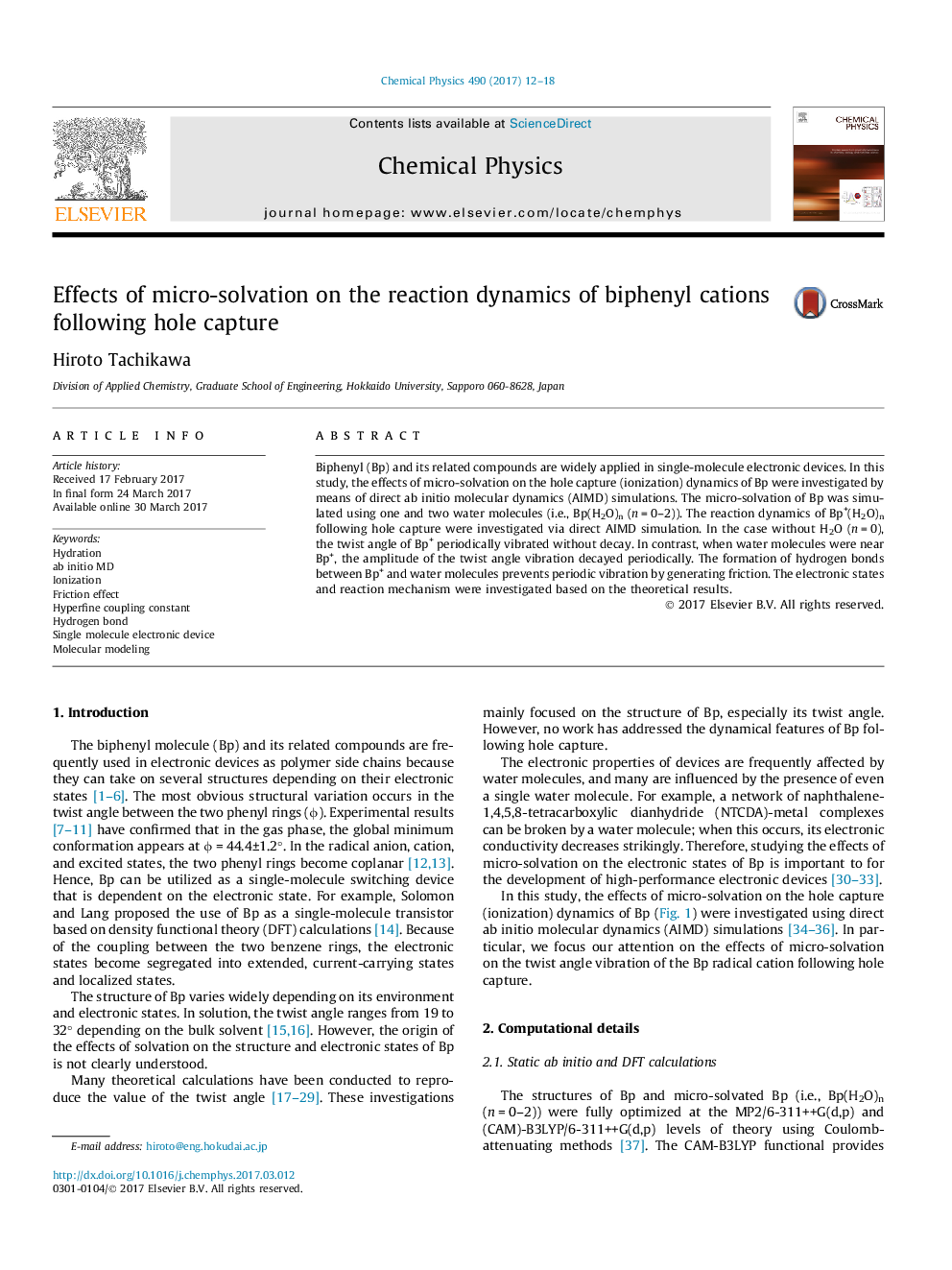| Article ID | Journal | Published Year | Pages | File Type |
|---|---|---|---|---|
| 5372643 | Chemical Physics | 2017 | 7 Pages |
â¢The twist angle of the biphenyl radical cation (Bp+) vibrates strongly following hole capture.â¢The friction of water molecules prevents the twist angle vibration of Bp+.â¢The amplitude of the Bp+ twist vibration is decreased by water molecules.â¢Hydration affects the proton-hyperfine coupling constants negligibly.
Biphenyl (Bp) and its related compounds are widely applied in single-molecule electronic devices. In this study, the effects of micro-solvation on the hole capture (ionization) dynamics of Bp were investigated by means of direct ab initio molecular dynamics (AIMD) simulations. The micro-solvation of Bp was simulated using one and two water molecules (i.e., Bp(H2O)n (n = 0-2)). The reaction dynamics of Bp+(H2O)n following hole capture were investigated via direct AIMD simulation. In the case without H2O (n = 0), the twist angle of Bp+ periodically vibrated without decay. In contrast, when water molecules were near Bp+, the amplitude of the twist angle vibration decayed periodically. The formation of hydrogen bonds between Bp+ and water molecules prevents periodic vibration by generating friction. The electronic states and reaction mechanism were investigated based on the theoretical results.
Graphical abstractDownload high-res image (105KB)Download full-size image
